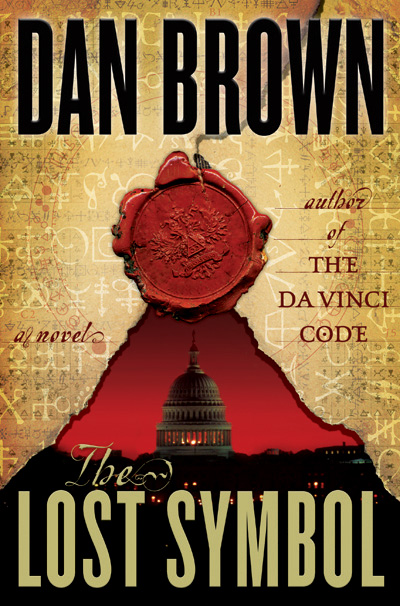Have you read the Lost Symbol by Dan Brown? Did you enjoy it if so?
I've read most of Dan Brown's books, and while I'm not a huge fan, I do enjoy his stories and the fantastical idea that there could be some huge conspiracy or esoterica out there that only a few people know about. Dan Brown's writing could use some work, he is not decriptive enough, and he's not crafting great literature here, but the content of his stories usually makes up for that, and his latest novel, The Lost Symbol, is no exception. This is the third book to follow Robert Langdon, a Harvard Symbologist who previously showed up in Angels & Demons: A Novel (Robert Langdon), and The Da Vinci Code.
The Lost Symbol is actually very similar to his previous books, in that it has the same formulaic plot, structure, and theme, only this time it takes place in Washington, D.C. And involves the Freemasons instead of the Knights Templar. Just like in the Da Vinci Code, Langdon is called to Washington at a friend's request, only to find him missing, and spends the rest of the book chasing clues throughout the city and trying to outwit a new villain who is seemingly as smart as he is. As mentioned above, the formula in The Lost Symbol is almost exactly the same.
After only a few chapters into the book, I started drawing immediate comparisons to National Treasure (Widescreen Edition), and I could see some readers making that claim if it weren't for a few exceptions: Langdon is more likable than Ben Gates, the mysteries are much more involved and well-researched, and there is noticeably more action and suspense. This time, rather than trying to ignore some rather large plot holes, as contained in the Da Vinci Code, you will have to suspend your disbelief that a Harvard professor is physically capable of so many close calls. It almost reads more like an Ian Fleming novel than a book about a mid-50s professor trying to solve a centuries-old scavenger hunt.
That works out well because a lot of books of this genre can get weighed down by the scientific or historical aspects and bore you to death.

While it has certainly improved since The Da Vinci Code, it still seems rather sophomoric, and not on par with someone who is one of the biggest-selling authors in the last twenty years. Even though it's fiction, some of the characters' actions really made me wonder if Brown has had much human contact while writing the book. There are other annoyances that he continually repeats in the book, but I won't bring them up for fear that mentioning them may cause future readers to have their attention constantly drawn to them.
Overall though, the writing is not terrible and the plot is suspenseful enough that I can overlook it. Another theme that Brown plays around with is the concept of "mind over matter. " He provides a great deal of research on the subject (too much in some chapters), but I still found it a little too out there, and wish he had chosen a different angle.
I think this book will appeal not only to Dan Brown fans, but to fans of Douglas Preston and Lee Child (Langdon is almost a clone of the Agent Pendergast character), James Rollins, Michael Crichton (there are certainly a lot of influences here as far as research into a book goes), and with this book, Clive Cussler (the action is on par with anything Dirk Pitt would see). If I had to rank it, I would put The Lost Symbol below Angels and Demons, and above Da Vinci Code. While I don't think it's worth of 5 stars, it was certainly an enjoyable read and enough to satiate me until the next book comes out (provided he doesn't wait as long as he did for this one).
I cant really gove you an answer,but what I can give you is a way to a solution, that is you have to find the anglde that you relate to or peaks your interest. A good paper is one that people get drawn into because it reaches them ln some way.As for me WW11 to me, I think of the holocaust and the effect it had on the survivors, their families and those who stood by and did nothing until it was too late.
Related Questions
What is the lost symbol in Dan Brown's last literary work?
What is a good thesis statement for Dan Brown's The Lost Symbol?
Does anyone have any new book suggestions. My last few favorite books have been from Dan Brown and just read Last Templar?
Does anyone have any new book suggestions. My last few favorite books have been from Dan Brown and just read Last Templar
How many calories does a P.F. Chang's Dan Dan Noodles have?
If polls say Paul Ryan is the worst VP pick since Dan Quayle, why does Romney make Dan Quayle look like JFK?
